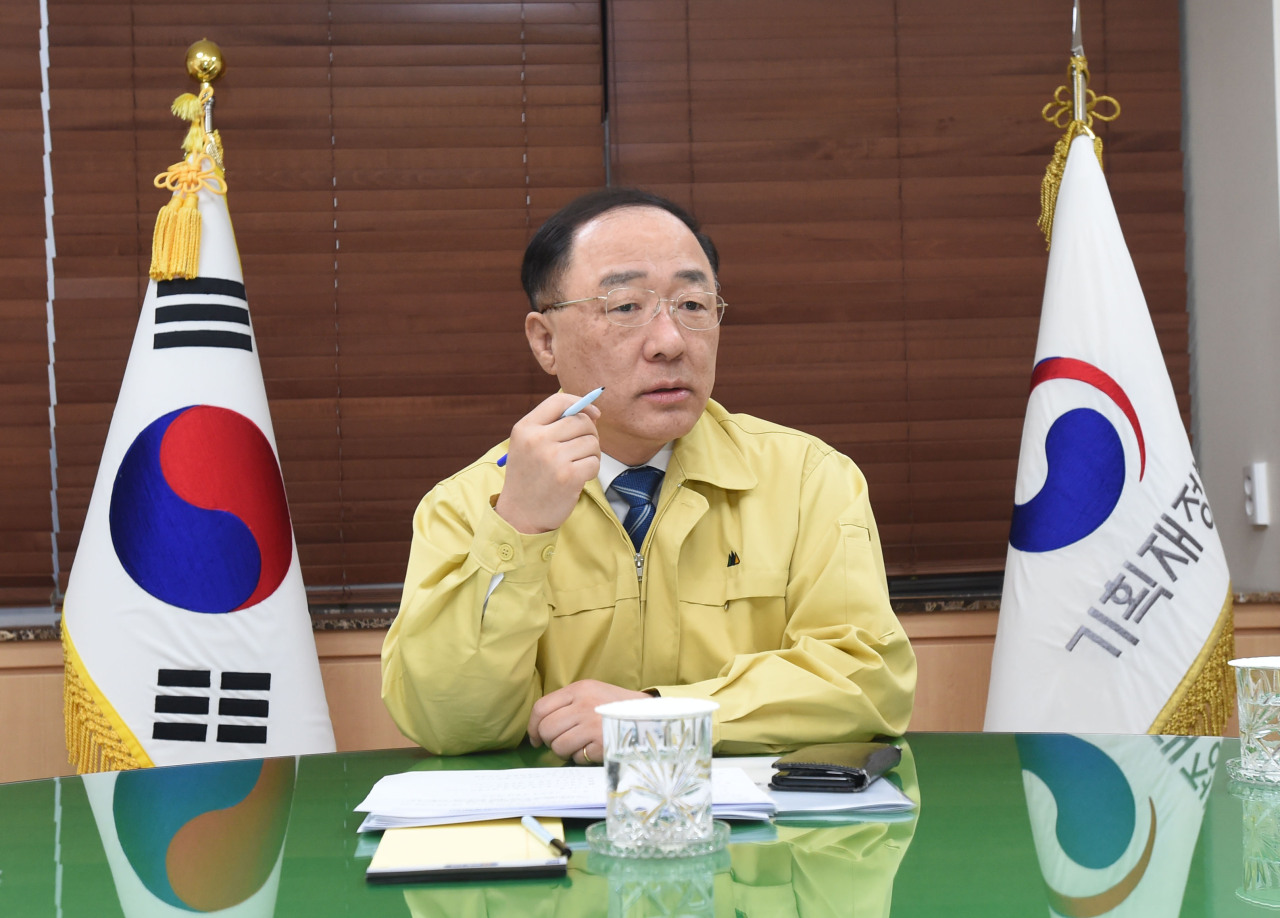S. Korea to tighten grip over stock short selling as emergency action
By Bae HyunjungPublished : March 10, 2020 - 16:02

South Korea vowed Tuesday to tighten regulations on stock short selling to stabilize the market amid increased volatility caused by the spread of the new coronavirus, and also the sudden drop in global oil prices.
“As a market stabilizing action, (the government) will alleviate the requisites for (designating) overheated short selling and expand the transaction ban period (for these stocks),” Deputy Prime Minister and Finance Minister Hong Nam-ki was quoted as saying in a ministerial meeting.
The new measures will take effect Wednesday and last for three months.
Short selling is a strategy of borrowing, selling and repurchasing stocks to return it to the lender, betting that the share price will drop. It can be used to raise liquidity and boost stock prices in a sluggish market but is also often blamed for increasing volatility.
“The details of the measures will be announced by the Financial Services Commission after today’s market closing,” said a ministry official.
The regulatory move came as the country’s benchmark Kospi slipped over 4 percent from the previous session to close at a six-month low of 1,954.77.
The drastic fall was partly attributed to the massive short selling by foreigners and institutions. Foreign investors sold a net 1.3 trillion won ($1.1 billion) on Monday, renewing the record since operator Korea Exchange (KRX) began tracking such data in 1999.
The US stock market also faced a black Monday, with the Dow Jones Industrial Average plummeting 7.79 percent.
“(The Korean government) will take additional market stabilization measures in a swift and bold manner, if required,” said Vice Finance Minister Kim Yong-beom.
Citing the prolonged impact of COVID-19, the senior official added that volatility in global financial markets is likely to continue for a considerable length of time.
Meanwhile, the government also vowed to draft a separate set of measures to respond to the recent crash in global oil prices.
The West Texas Intermediate closed at $31.13 per barrel on Monday at the New York Mercantile Exchange, down $10.15, or 24.6 percent, from the previous closing. This marked the steepest on-day fall since 1991 during the Gulf War.
Also, the government is pinning hopes on effectuating a 11.7 trillion won supplementary budget bill to offset the economic fallout of the epidemic. The bill for the extra budget is currently pending at the National Assembly, and is expected to get final approval next week.
By Bae Hyun-jung (tellme@heraldcorp.com))







![[Graphic News] More Koreans say they plan long-distance trips this year](http://res.heraldm.com/phpwas/restmb_idxmake.php?idx=644&simg=/content/image/2024/04/17/20240417050828_0.gif&u=)
![[KH Explains] Hyundai's full hybrid edge to pay off amid slow transition to pure EVs](http://res.heraldm.com/phpwas/restmb_idxmake.php?idx=644&simg=/content/image/2024/04/18/20240418050645_0.jpg&u=20240419100350)





![[From the Scene] Monks, Buddhists hail return of remains of Buddhas](http://res.heraldm.com/phpwas/restmb_idxmake.php?idx=652&simg=/content/image/2024/04/19/20240419050617_0.jpg&u=20240419175937)

![[KH Explains] Hyundai's full hybrid edge to pay off amid slow transition to pure EVs](http://res.heraldm.com/phpwas/restmb_idxmake.php?idx=652&simg=/content/image/2024/04/18/20240418050645_0.jpg&u=20240419100350)

![[Today’s K-pop] Illit drops debut single remix](http://res.heraldm.com/phpwas/restmb_idxmake.php?idx=642&simg=/content/image/2024/04/19/20240419050612_0.jpg&u=)